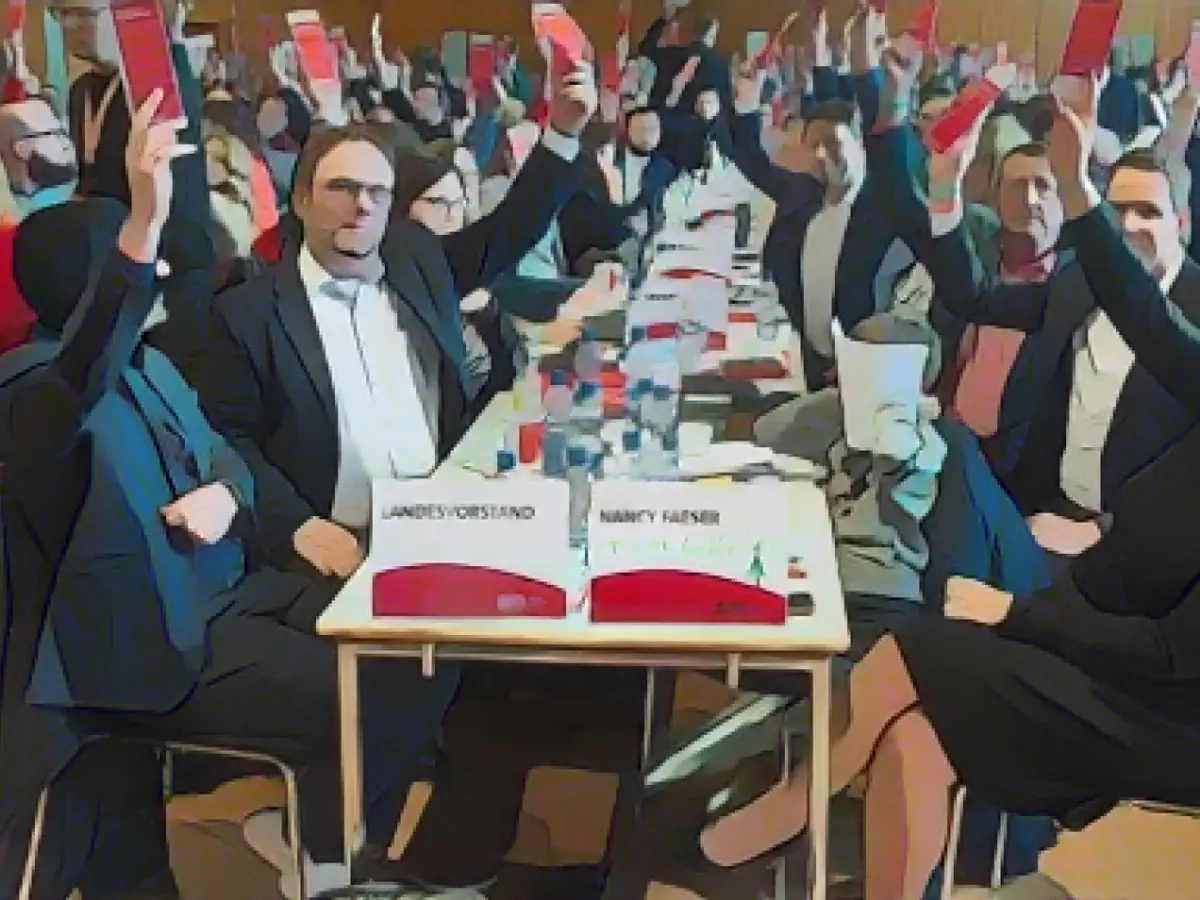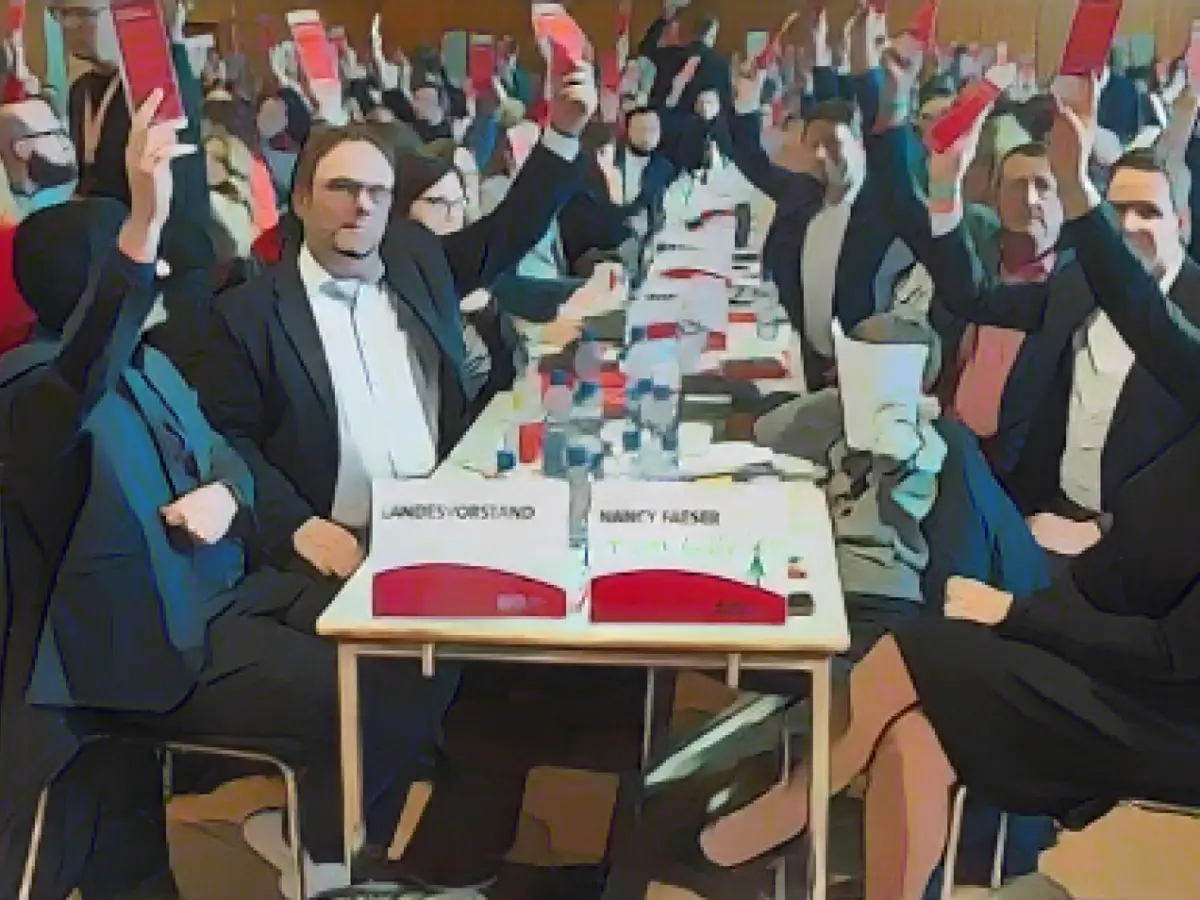In a major turn of events, Germany's CDU and SPD parties have agreed to form a coalition government in Hesse, set to be officialized on Monday, December 18, in Wiesbaden. The controversial agreement was backed with 81.9% approval during the SPD conference in Groß-Umstadt, while the CDU conference in Frankfurt approved it with an astonishing 99.2% majority.
Minister President Boris Rhein (CDU) hailed the agreement as a "treaty that brings things together," assuring the CDU's election manifesto promises would be upheld and the minority would still be protected. Given the current crises, he emphasized the importance of restoring public trust in politics and democracy.
While immigration was singled out as a significant topic in the agreement, Rhein stressed that the CDU would address it proactively without sparking radical backlash. The party pledged to allocate only to local authorities immigrants with the potential to settle long-term in Germany, with clear commitments to combating anti-Semitism and supporting Israel's right to exist.
Rhein also addressed the issue of police officer treatment in the country, revealing plans for stricter penalties for assaults on law enforcement officials. As a potential drawback, he acknowledged a "painful point" in the agreement, establishing that there would be no CDU-led Ministry of Economics in the future cabinet.
On the SPD's side, Feder minister of the Interior Nancy Faeser referred to the coalition as a "community of responsibility," acknowledging the divisive positions in refugee policy, but emphasizing the importance of addressing the needs of migrants.
Bijan Kaffenberger, an SPD member of Hesse's state parliament, maintained that his party would assume responsibility in the government for social cohesion, pledging support for childcare costs and medical facilities.
During the SPD conference, criticism of the agreement emerged, with speakers raising concerns over narrow migration guidelines and proposed bans on special gender symbols in schools. Some attendees, including a non-binary individual, even denounced the agreement as "extremely painful." Nevertheless, the SPD entered the coalition as a junior partner with only three ministries, having garnered 15.1% of the vote in October's state elections, far less than the CDU's 34.6%.
With the legislature due to be sworn in on January 18, 2024, and the list of cabinet heads yet to be revealed, the future of Germany's Hesse state government remains firmly in the hands of the CDU and SPD.








